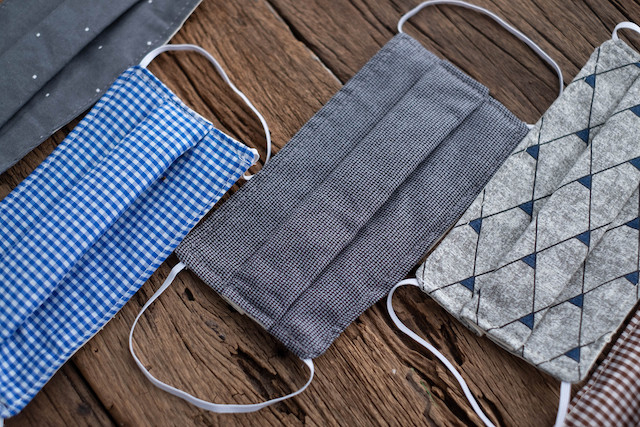Cours de Couture, which is based in Belgium but also had a workshop in Luxembourg-Kirchberg before lockdown measures were introduced, launched the public communication campaign last week for the public to equip themselves. “The masks won’t replace confinement and that is not our objective,” the NGO’s founder Vincent Laurent explained in a short video. “We think with a reinforced confinement and masks we can really push ahead.”
Coronavirus is transmitted through droplets. To avoid contamination, frontline staff, for example, should wear gloves and protective gear for their eyes and mouth. But the virus has created a critical shortage of this kind of equipment. In some instances, single-use masks are having to be reused, placing frontline staff at risk.
A number of fashion brands, including Prada, Gucci and Yves Saint Laurent, have now turned their production lines into mask-making factories.
While experts are doubtful that homemade cloth masks can be as effective as certified medical masks, something is better than nothing. And even the US Centers for Disease Control and Prevention has advised that where no masks are available, healthcare professionals “might use homemade masks (e.g., bandana, scarf) for care of patients with COVID-19 as a last resort. However, homemade masks are not considered PPE, since their capability to protect HCP is unknown.”
The Cours de Couture is encouraging the manufacture of masks using a pattern it says is provided by various centres hospitalier universitaire (university hospitals) in Belgium. Instructions in English have meanwhile been shared on research-sharing site Researchgate by Anna Davies, a research microbiologist at Cambridge University.
In Belgium, Laurent is petitioning for private companies to make materials available for the public to make their own masks (to be reimbursed by the Belgian state), for professionals making masks to receive a technical unemployment benefit, for it to be made illegal to sell masks and for media outlets to share information on fabric mask-making.
It should be noted that the World Health Organization recommends masks only be worn by people who are ill with covid-19 or looking after someone who may have covid-19. In light of the global shortage, it adds they should be used “wisely”. Further details on how and when to use a mask can be found here. Basic protective measures to avoid contracting or spreading the disease can be found here.

Photo shows a 3D printed visor/medical shield. Photo: Metaform
3D-printed medical shields
In Luxembourg, designers at architectural firm Metaform have published guidelines for 3D printing full face visors or medical shields to protect frontline staff during the crisis. Details can be found via this Wetransfer link.
The proposed model uses A4 transparent plexiglass (200g) sheets, found in supermarkets and stationery shops. “But we don't have enough transparent plexi sheets. Therefore, we are appealing to all people or suppliers who might have this in their stock,” Shahram Agaajani, founder of Metaform Architects, told our colleagues at Paperjam. Anyone able to supply these materials should email [email protected].
